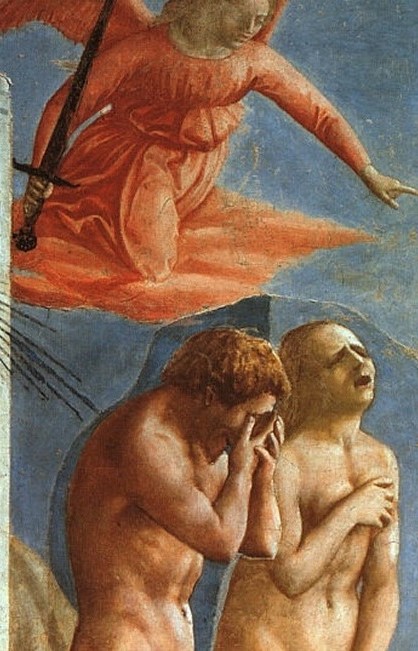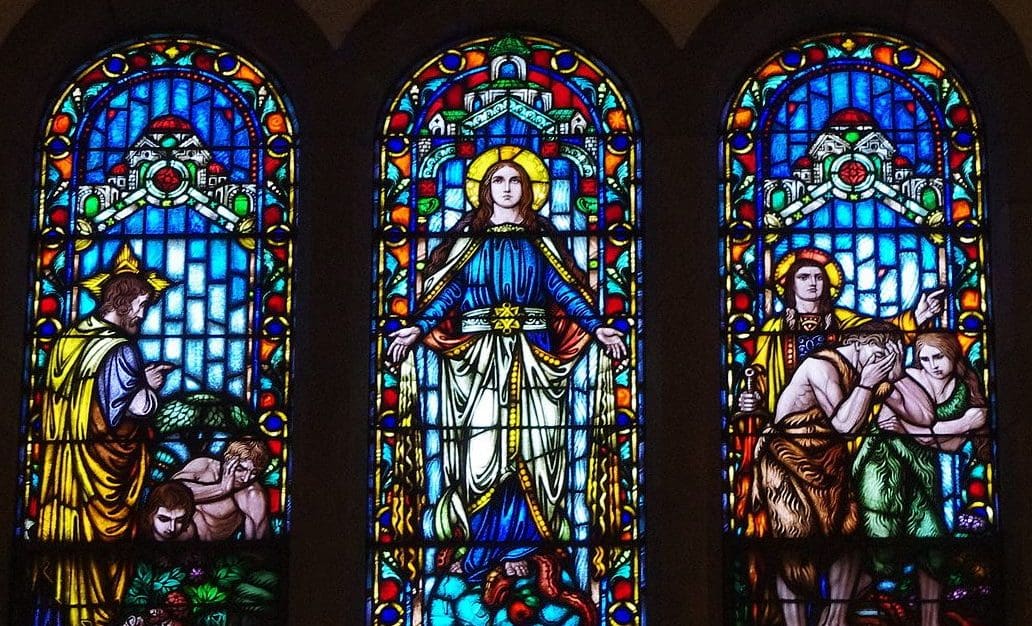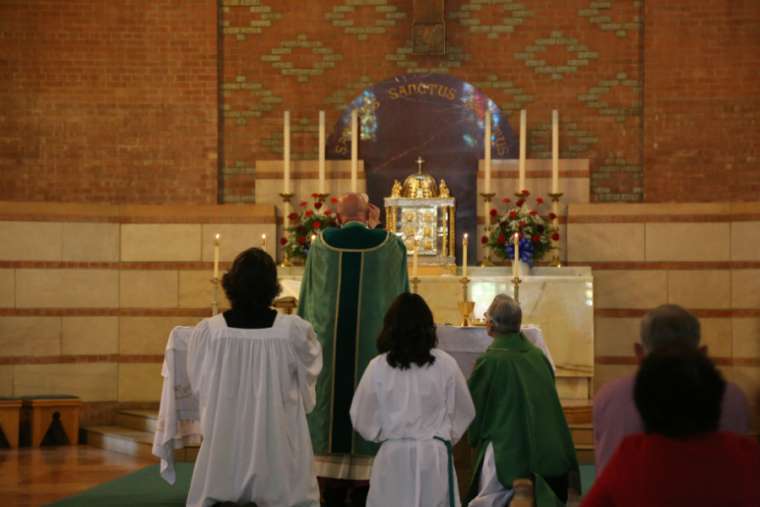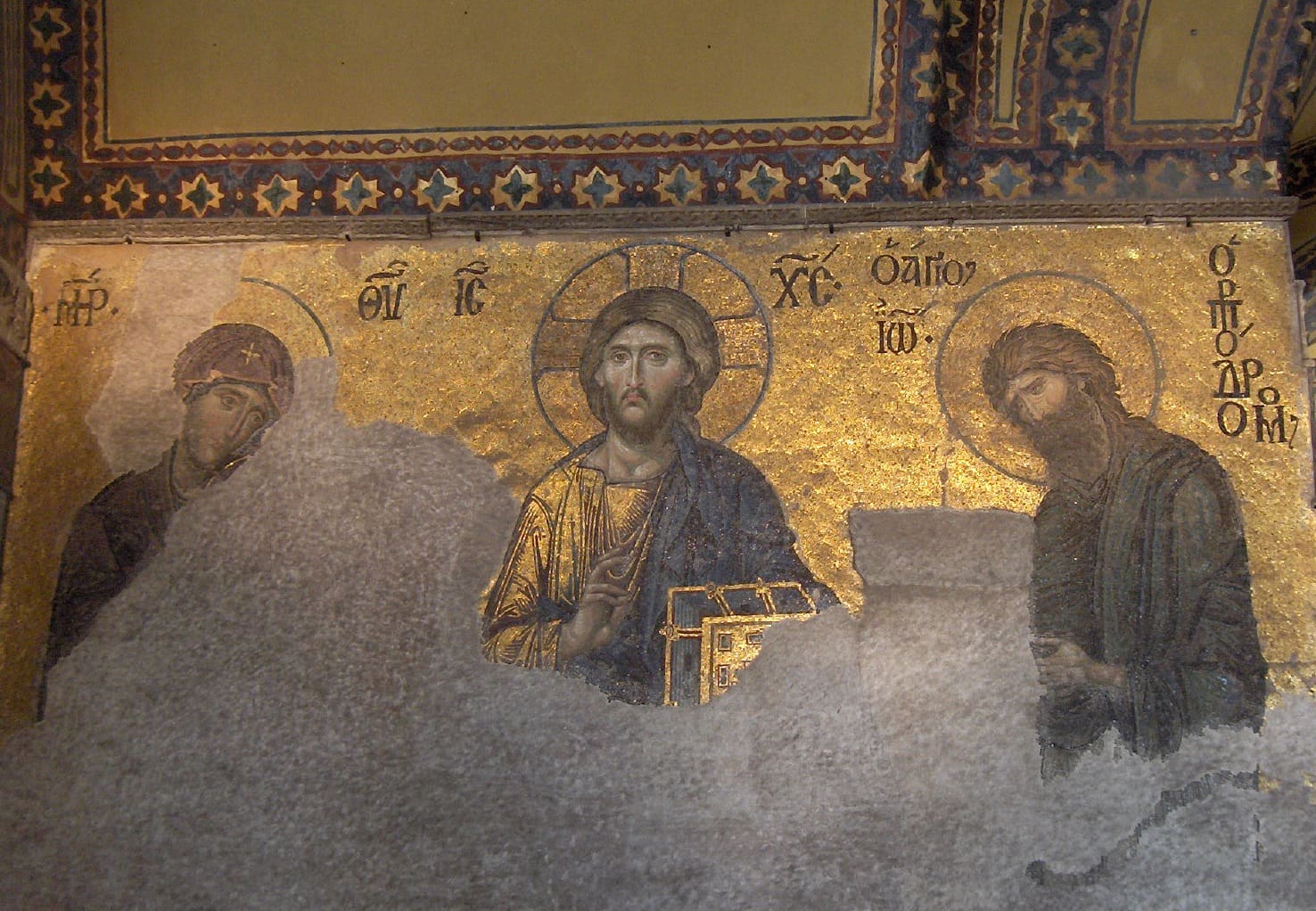Poets aren’t known for their straight talk. But that’s not to say that they can’t express the truth. Indeed, sometimes to tell it like it is, some folks have to resort to the symbolic semantics of poetry—in this case, paradox.
A paradox juxtaposes (para) two seemingly contradictory truths or opinions (doxa). Socrates, for example, was said to be the wisest man because he readily admitted his ignorance. Shakespeare showed us how to look beneath the surface of things by saying that “fair is foul, foul is fair.” And even Jesus—the Trinitarian Wordsmith—taught that “Whoever finds his life will lose it, and whoever loses his life for my sake will find it” (Matthew 10:39; also Mark 8:35; Luke 9:24; John 12:25).

How can one be both wise and ignorant at the same time? When is foul fair—and vice versa? And this losing life to gain life business—say again?
But before we get to the truth that lies within (yet beyond) words, let’s consider yet another paradox: why is Original Sin called a “happy fault”?
We’ll encounter this orthodox paradox in that great poetic text at the Easter Vigil, the Exsultet. At one point, the deacon will wax (as the moon begins to wane):
O wonder of your humble care for us!
O love, O charity beyond all telling,
to ransom a slave you gave away your Son!
O truly necessary sin of Adam,
destroyed completely by the Death of Christ!
O happy fault
that earned so great, so glorious a Redeemer!
O truly blessed night,
worthy alone to know the time and hour
when Christ rose from the underworld!
This “happy fault,” or felix culpa, has caught the imagination of Catholics (not to mention poets of any persuasion) for centuries. Why is our fault a happy one? What explains this paradox? Even though the Exsultet itself supplies an answer—it earned for us “so great, so glorious a Redeemer”—wouldn’t it have been more desirable to have never fallen in the first place? Aren’t the confines of the natural garden preferable to the freedom of choosing hell? Isn’t the God that Adam did know on earth better than the God I hope to know in heaven?
In short: no, no, and no.
One of the best explanations I’ve come across of this fallen-yet-happy state of affairs is expressed by Msgr. Reynold Hillenbrand (1904-1979), one-time rector of the University of St. Mary of the Lake in Mundelein, IL, and long-time leader in the American liturgical movement. He explains:
“The truth is simple: the world, with all its present disabilities, is now more glorious, is now more fraught with possibilities for our divine life than paradise would have been…. We can become greater saints, than we could if Adam had never sinned and Eden had remained.” Happy indeed!
Surely this explains another paradox: why the Friday of Christ’s death is called “good.” But wait! Who among us, even as we acknowledge “Good Friday” as good, tend to focus on the day’s death rather than the subsequent life?
Again, Monsignor Hillenbrand offers some insight: “Doubtlessly, one of the reasons we are such dull, routine Christians and have so little effect upon the world is that we have no sense of…our newness in Christ. We are so much engrossed with the riddling effects of the first sin. We sense the collapse, not the restoration. We sense the Fall, not the lifting up. We sense the ancient enthrallment, not the release into the new glorious freedom, the freedom of the sons of God. Our thinking is so pre-Incarnation, if I can put it that way. We direct our attention to the lost Paradise rather than to the infinitely more wonderful, though immensely more difficult, world that we have now” (Proceedings from the 1948 National Liturgical Week, ‘The New Man in Christ,’ August 2–6, Boston, 33).
So, if we wish to avoid the heterodoxy of the fall and ascribe to the orthodoxy of a faith in the risen Christ, an appreciation of the Exsultet’s paradox is key. By it, we can bask in the Vigil’s “dazzling night” and, perhaps, rejoice in our “happy fault.” Indeed, the Exsultet speaks in a moment, but it embraces all of eternity—as does all language intended to be taken in the right wrong way.


